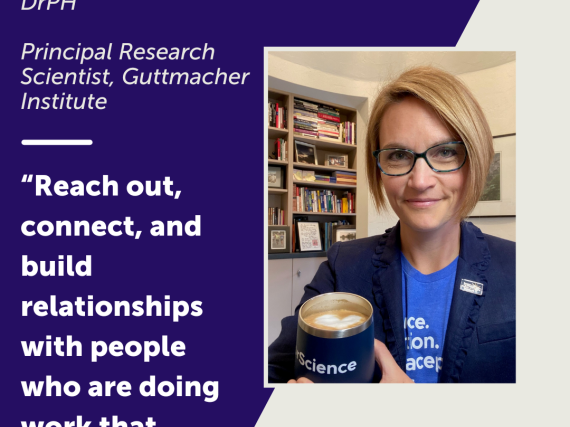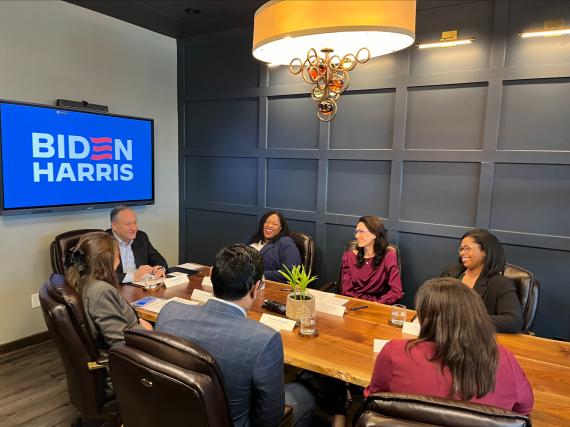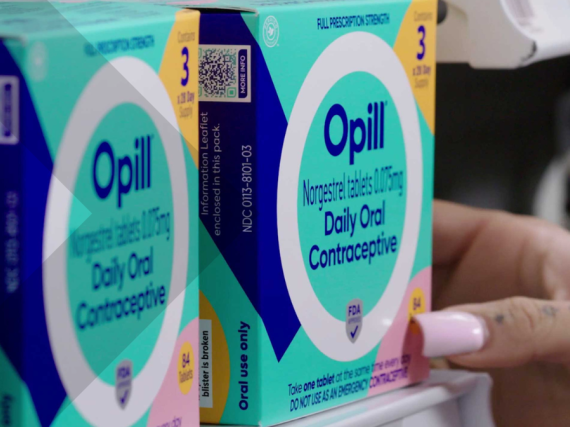March 2023 Power Player
At Power to Decide, we’re committed to uplifting the many individuals on the ground doing the work that matters most. Each month we highlight an individual who is championing the effort to support people’s reproductive well-being. Check out this month's Power Player profile.
Aletha Y. Akers, MD MPH FACOG, she/her/hers
Vice President for Research, Guttmacher Institute
What work have you done to ensure that all people have the information and access they need to make decisions that align with their intentions and improve their reproductive well-being?
Ensuring that all individuals have access to the information and available services necessary to make decisions about one’s on health and wellness has been a fundamental hallmark of my career as a physician and health services researcher. As a physician, this meant asking patients for their preferences and taking the time to understand what informed those preferences so that I could deliver high quality and respectful care. Importantly, such care frequently but did not always align with what medicine or public health guidelines view as the most effective, efficient, or timely care options. Balancing these two things—the self-determined needs of patients and the population health goals of our clinical and public health systems—epitomizes the art of medicine.
How did you get started in your field? What is your driving force?
My career in medicine and public health started with an interest in understanding how individual’s health goals and cultural contexts influenced their health decisions. My family roots are in the Black, rural southern United States. I grew up with stories of home remedies, a variable trust in physicians and the formal health care sector, and a formidable belief that where individual care preferences were not met, poor quality care lurked. As a child, I saw first-hand how strong care preferences could result in engagement or avoidance of needed health services, which fascinated me. Watching members of my community either thrive or suffer prematurely drove my interest in understanding the dynamics affecting the acceptance of health care services.
My interest in adolescent reproductive health stems from my personal experiences. Growing up in the 1980s, I was the recipient of a moderately comprehensive sex education in my public high school, though advice about accessing reproductive services was absent. Every year, a handful of girls became pregnant and were sent to special schools. Few returned after delivery and those that did were frequently shunned. I found the combination of the lack of actionable information about preventing highly stigmatizing conditions—sexually transmitted infections and pregnancy—to be unconscionable. The double standard reflected in honoring adolescent male’s sexual expression—both within our high school and the movie culture of the 80’s infuriated me. I was drawn to adolescent reproductive health and the potential to change those societal norms which I felt were harmful to all adolescents.
What advice would you give to someone looking to effect change in the field that you currently work in?
There are many ways to effect change in the reproductive health space and we need a diversity of expertise, experiences, and perspectives. Clinicians, social workers, policy makers, biotech innovators, educators, donors, advocates, all play a critical role in advancing the field and ensuring patients get the best care possible.
However, no matter what professional road one takes, what we really need right now are people involved in their communities! National polls repeatedly find that Americans support comprehensive sex education, abortion rights, gender equality, LGBTQ rights, among others reproductive health priorities. The anti-abortion movement is having a resurgence but their views on abortion and reproductive rights do not reflect the opinions of the majority of Americans. My advice is to do what you love as you see to advance reproductive rights, become active in your community, and encourage your friends and family to do the same.
Why should someone care about ensuring that all people—regardless of who they are or where they live—have the information and access they need to live their best life?
Ensuring that information and access to reproductive services is the best form of insurance. When we extend these rights widely, we ensure that those things are available to not only to ourselves but to our loved ones. As a physician, I have met so many people facing devastating reproductive health situations who assumed that they were an exception. They assumed that suffering silently and not speaking out about the value of the services they were receiving was best. That is stigma talking. All people, regardless of geography, income, migratory status, race, culture, or other descriptive characteristics deserve access to information and reproductive health services to thrive.
Is there a highlight of your recent work that you’d like to share?
Two recent pieces of work I am particularly proud of are, an op-ed in Ms. Magazine and my most recent blog published in Policy Lab.



